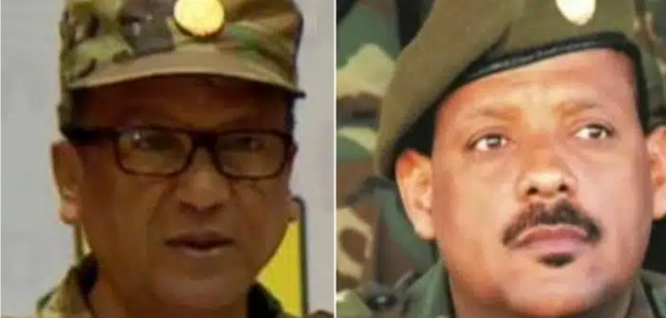Ethiopian government officials are often assassinated. Political violence has resurfaced as opposition and rebel organizations use violence to attain their goals. Ethiopia has seen extrajudicial murders since the Red and White Terror under Dergue in the 1970s and 1980s.
Today, third parties including political groups, individuals, and other non-state entities commit these crimes.
Government employees were assassinated immediately after Prime Minister Abiy Ahmed (PhD) took office in 2018. At a Meskel Square demonstration in the early political transition, the Prime Minister escaped a grenade attack.

Two months later, GERD head engineer Simegnew Bekele was found dead in his automobile in the same square. 2019 saw more terrible murders.
Ambachew Mekonnen and Seare Mekonnen (Gen.) were slain.
In June 2019, Bahir Dar’s capital, Ambachew and his advisor Ezez Wassie were slain. On the same day, Seare’s bodyguard assassinated him in Addis Ababa after seemingly turning on him. Asamnew Tsige (Gen.), Amhara’s chief of state security, headed a party of troops who carried out the coup attempt in the region’s executions.
Last month, armed factions in the Amhara Region killed another official, a sad reminder that history repeats itself.
Regional states have seen more killings, but even the capital city has been affected. The Amhara regional state Prosperity Party head Girma Yeshitila and the Afar region PP leader of Hanruka District, Umer Lema, have been slain in recent months.
Oromia had the most officials slain in recent years, save for Tigray, where the two-year civil war caused such brutality. Last year, the Oromo Liberation Army (OLA) assassinated 28 officials.
Political and ethnic tensions in Oromia lead to government assassinations. Political organizations representing the majority Oromo community of Oromia have long complained of political marginalization and discrimination. In response, armed organizations like the Oromo Liberation Army (OLA) have attacked government officials and security forces to promote their political goals.
Ethiopian official targeted killings have been researched by several groups. Opposition parties attacking government people is a sign of larger political and societal issues, frequently rooted in bad administration, according to research.
Kristian Takvam Kindt and Kjetil Tronvoll found in a 2019 Journal of Modern African Studies study that political violence, including targeted killings of government officials and leaders, had created a culture of fear and mistrust and undermined social cohesion and political stability.
In 2017, Lencho Lata and the Institute for Security Studies determined that political violence, including targeted assassinations, disrupted supply lines and lowered investor confidence in Ethiopia, hurting economic growth. Amnesty International and Human Rights Watch have reported targeted deaths of Ethiopian opposition leaders, journalists, and human rights campaigners.
These research showed that targeted assassinations of Ethiopian officials can affect political stability, social cohesion, human rights, and economic development.
Political heavyweights have debated Ethiopia’s recent violence, proposing their own explanations. Some blame the governing party for lawlessness, while others blame the administration.
The problem goes beyond political reform for renowned Amhara lawmaker Chuchu Alebachew. Chuchu instead blames weak leaders.
He believes leaders are made through hard labor. However, Ethiopian leaders have failed to listen, producing a country that “consumes its leader” and causing current Amhara problems.
The Extremely High Cost of Power
Despite these problems, Chuchu believes great leaders will emerge from the nation and deliver Ethiopia the peace and security it needs. He underlines that political conflicts are inevitable and do not make leadership tougher.
Opposition politician Mulatu Gemechu believes Ethiopia’s recent murders are political and caused by the government’s incapacity to maintain order. He claims that the government has mismanaged its power and resources, making it difficult to uncover criminals.
Mulatu stresses that promoting harmony and stability requires meeting people’s interests through a plan that benefits everyone.
The Oromo Federalist Congress secretary, Tiruneh Gemta, blames the governing party for Ethiopia’s current condition.
The legislator demands a third-party probe because “as an opposition party, we have lost our members.”
Tiruneh also claims that civilians and political opponents have been targeted by the violence. He thinks the small political arena causes all issues.
With these opposing views, it’s unclear how the government would respond to the violence and protect Ethiopians.

